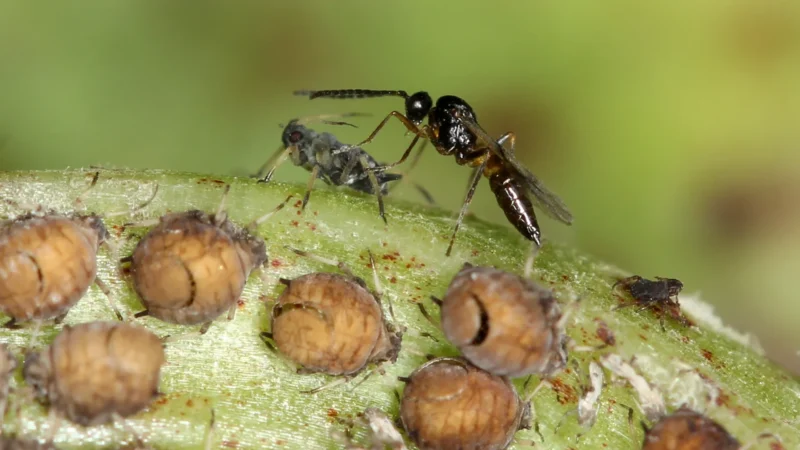Top Highlights
-
Groundbreaking Discovery: Dr. Rebecca Boulton revealed that the parasitoid wasp Lysiphlebus fabarum can reproduce both asexually and sexually, challenging previous beliefs about asexual reproduction in females.
-
Natural Pest Control: This species is crucial for biological pest control, targeting sap-sucking aphids by laying eggs inside them, thus providing a natural alternative to pesticides.
-
Evolutionary Advantages: While asexual reproduction is efficient, facultative sex allows for genetic diversity, enhancing adaptability to environmental changes—vital for long-term pest management strategies.
- Potential for Improved Biocontrol: Understanding the reproductive dynamics of these wasps could lead to the development of more effective pest control agents tailored to specific regional conditions and pest populations.
Revolutionizing Pest Control Through Discovery
Recent research reveals a surprising reproductive strategy in the tiny wasp, Lysiphlebus fabarum. This discovery redefines our understanding of asexual reproduction in the context of biological pest control. Traditionally, scientists believed that asexual females could not reproduce with males. Dr. Rebecca Boulton’s study challenges this view, showing that these wasps can mate both asexually and sexually. This flexibility may enhance their effectiveness as natural pest controllers, particularly against damaging aphids.
The significance of this finding extends beyond academic curiosity. The wasps already serve as effective pest controllers, laying their eggs in aphids before consuming them from within. By encouraging genetic diversity through facultative sex, researchers hope to develop more resilient populations of these wasps. As agriculture faces increasing pressure from pests and environmental changes, this natural method could serve as a much-needed alternative to chemical pesticides.
Potential for Widespread Adoption
The implications of this research are vast. Currently, Lysiphlebus fabarum is not commercially reared, despite its global presence and natural pest-controlling abilities. Understanding their dual reproductive methods could inspire agricultural practices that rely less on harmful chemicals. Moreover, the ability to adapt these wasps to local environments could enhance their efficacy, making them more viable as a sustainable solution for pest management.
Dr. Boulton’s findings suggest a future where enhanced biodiversity in pest control agents helps mitigate global agricultural challenges. As this research gains traction, policymakers and agriculturalists must consider integrating these natural solutions into existing practices. Embracing such innovations can support food security and sustainability, illustrating that the secrets of nature can indeed transform our agricultural landscape.
Expand Your Tech Knowledge
Explore the future of technology with our detailed insights on Artificial Intelligence.
Stay inspired by the vast knowledge available on Wikipedia.
TechV1

